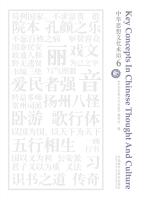笔记(共11篇)
-
用户827832
“Mountains and rivers accord with Dao by way of their shapes....” 全部笔记(1) 去书内
This text distills the core of Zong Bing’s On the Creation of Landscape Paintings, linking landscape’s form to the Dao and expanding Confucius’ maxim about virtuous men’s love for mountains and water. Zong argues that mountains and rivers embody both natural splendor and the universal law of change, making them beloved by virtuous people. The passage concisely unveils the Six Dynasties’ unique aesthetic view, which merges nature, philosophy, and morality. It offers a profound glimpse into how ancient Chinese literati perceived art and the cosmos through landscape.
-
用户827832
“In the Tang period, there were strange tales like unofficial...” 全部笔记(1) 去书内
Xia Tingzhi’s preface provides a sharp, concise overview of the evolution of Chinese performing and narrative arts across dynasties. It traces the shift from the Tang’s casual scholar-written strange tales to the Song’s vivid musical and comedic stage shows, then the Jin’s fusion of brothel scripts and zaju, and finally the distinct separation of these two forms in his era. This short passage not only maps a clear artistic lineage but also subtly reflects how literary and performing arts adapted to changing social tastes. It is a valuable microcosm of ancient Chinese literary and theatrical development.
-
用户827832
The text offers a concise yet informative overview of ancient Chinese entertainers, collectively called Youren and its variants. It traces their evolution from court-sponsored small groups to professional troupes post-Song and Yuan dynasties, expanding their acts from storytelling and acrobatics to opera. Notably, it highlights the stark contrast between their rich artistic contributions and their low social status in a society prioritizing ethics over amusement. Sima Qian’s inclusion of them in Records of the Historian further underscores their cultural significance despite marginalization. This piece effectively illuminates a lesser-known facet of ancient Chinese art and society, inviting deeper exploration of these artists’ lives and legacies.
-
用户829717
-
用户829717
-
用户829717
-
用户829717
“In selecting, explaining, translating, and sharing concepts in...” 全部笔记(1) 去书内
The work on Chinese thought - culture concepts uses a comprehensive approach. These concepts reflect Chinese philosophy, etc., and have timeless, cross - border value. Translating them helps foreign understanding of China, boosting equal dialogue and cultural exchanges. Supported by institutions and scholars.
-
用户829717
“They represent the Chinese people's exploration of and...” 全部笔记(1) 去书内
This foreword clarifies “key concepts in Chinese thought and culture”. These concepts, created by the Chinese, relate to philosophy, spirit, thinking, and values. They mirror thousands - year exploration of nature and society, reflecting wisdom and spiritual pursuit. Acting as cultural “life genes”, they shape the nation’s personality and beliefs. For Chinese, they’re keys to understanding own cultural evolutions; for foreigners, they unlock the spiritual world of China and its people.
-
用户823537
“Laws should be respected by the sovereign ruler and people...” 全部笔记(1) 去书内
Reading Notes on “The Law Must Be Respected Equally by the Son of Heaven and All the People” This concept underscores a core tenet: laws bind all, from rulers to commoners. Rooted in ancient Chinese legal thought, it evolves Legalists’ “法不阿贵 (the law does not favor the noble)”, challenging power arbitrariness. Key elements hold enduring value. Equality in abiding by laws, regardless of status, mirrors modern “no one is above the law” principle—vital for a just legal system. Restricting rulers from altering laws arbitrarily checks absolute power, ensuring legal predictability and protecting people’s interests. In modern governance, it aligns with the rule of law. It reminds us that legal systems must be impartial, and those in power must submit to legal bounds. This ancient wisdom still guides efforts to build fair, stable societies, showing how historical ideas illuminate contemporary quests for justice and order.
-
用户823537
“The law is a means of caring the people and the rites are for...” 全部笔记(1) 去书内
It resonates with Confucian “benevolent governance” and “people - centered” ideas, as both value the people. However, Confucianism emphasizes moral influence and inheritance of rites, while this excerpt focuses on practical effects, allowing breaking traditional rites for goals. Deep down, both aim at national stability and people’s well - being but differ in approaches—one relying on moral and rite persistence, the other on institutional reform, showing complementary and conflicting governance ideas. For modern social governance, this reform - oriented thinking is valuable. With rapid social development and new problems emerging, we should, like in the excerpt, focus on “benefiting the people and strengthening the state”, bravely break old institutional constraints, and flexibly adjust policies. In areas like people’s livelihood security and economic development models, we shouldn’t follow traditions blindly but innovate based on practical effects, making governance better adapt to the times, serve the people, and boost national development.



 京公网安备 11010802032529号
京公网安备 11010802032529号